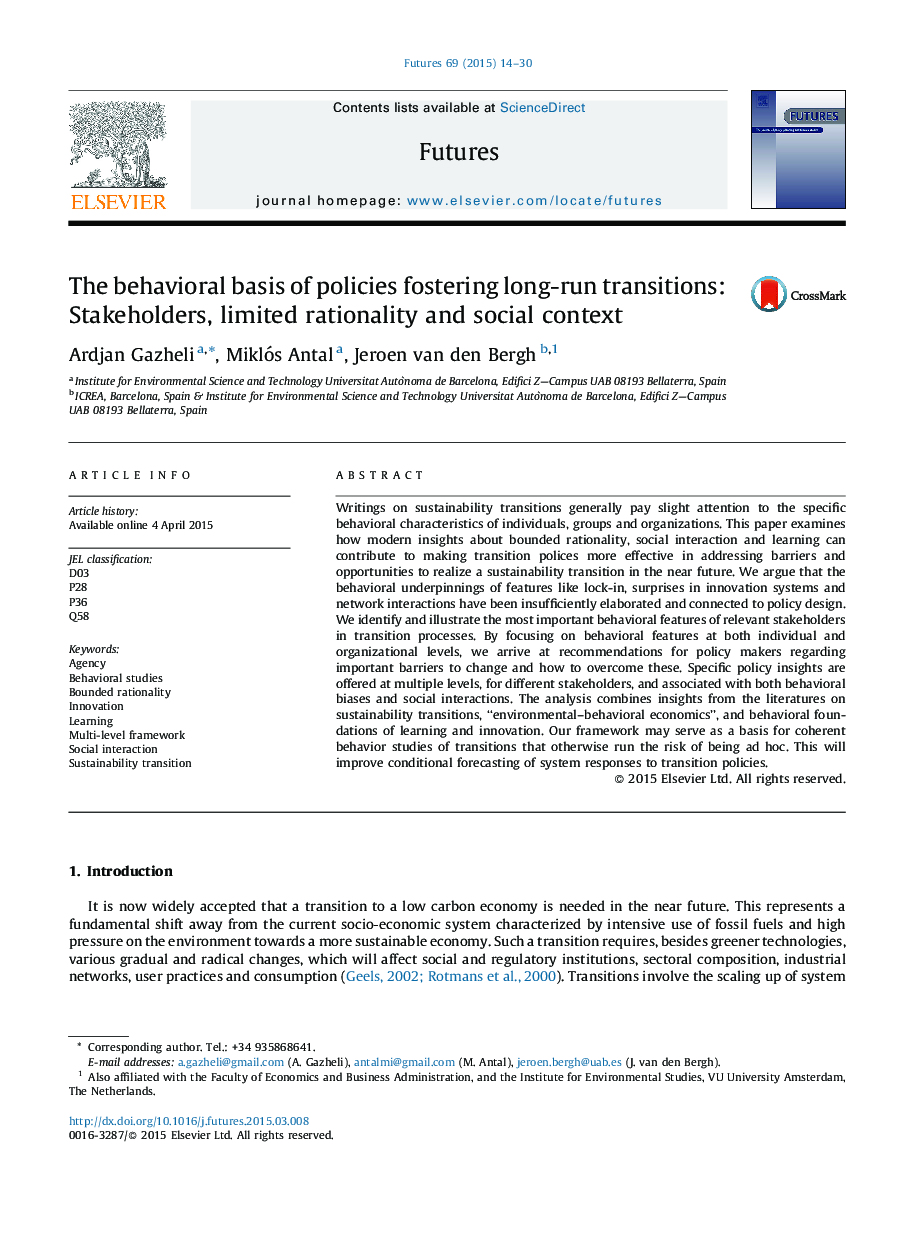| کد مقاله | کد نشریه | سال انتشار | مقاله انگلیسی | نسخه تمام متن |
|---|---|---|---|---|
| 1015473 | 1482761 | 2015 | 17 صفحه PDF | دانلود رایگان |
• We identify behavioral features of stakeholders important to sustainability transitions.
• This creates a more realistic view of limits and opportunities for a transition.
• We combine literatures on behavior/learning, policies, innovation and transitions.
• Our framework improves conditional forecasting of system responses to transition policies.
• It provides a fundamental basis for coherent policy studies of long-run transitions.
Writings on sustainability transitions generally pay slight attention to the specific behavioral characteristics of individuals, groups and organizations. This paper examines how modern insights about bounded rationality, social interaction and learning can contribute to making transition polices more effective in addressing barriers and opportunities to realize a sustainability transition in the near future. We argue that the behavioral underpinnings of features like lock-in, surprises in innovation systems and network interactions have been insufficiently elaborated and connected to policy design. We identify and illustrate the most important behavioral features of relevant stakeholders in transition processes. By focusing on behavioral features at both individual and organizational levels, we arrive at recommendations for policy makers regarding important barriers to change and how to overcome these. Specific policy insights are offered at multiple levels, for different stakeholders, and associated with both behavioral biases and social interactions. The analysis combines insights from the literatures on sustainability transitions, “environmental–behavioral economics”, and behavioral foundations of learning and innovation. Our framework may serve as a basis for coherent behavior studies of transitions that otherwise run the risk of being ad hoc. This will improve conditional forecasting of system responses to transition policies.
Journal: Futures - Volume 69, May 2015, Pages 14–30
